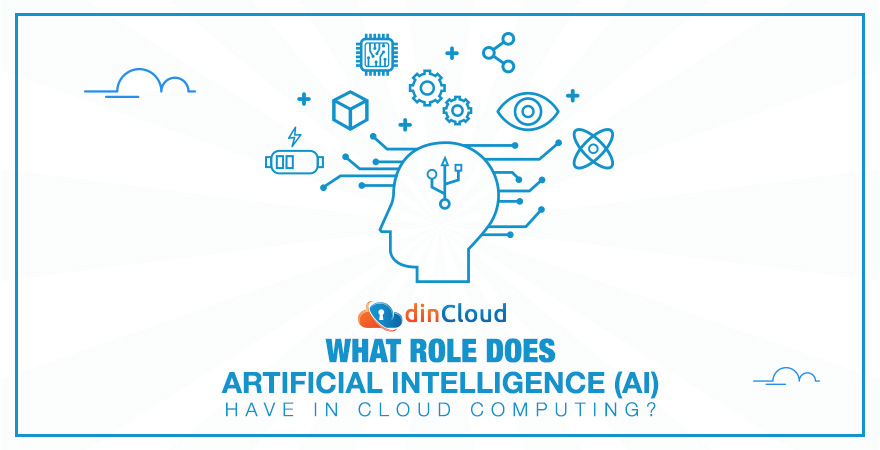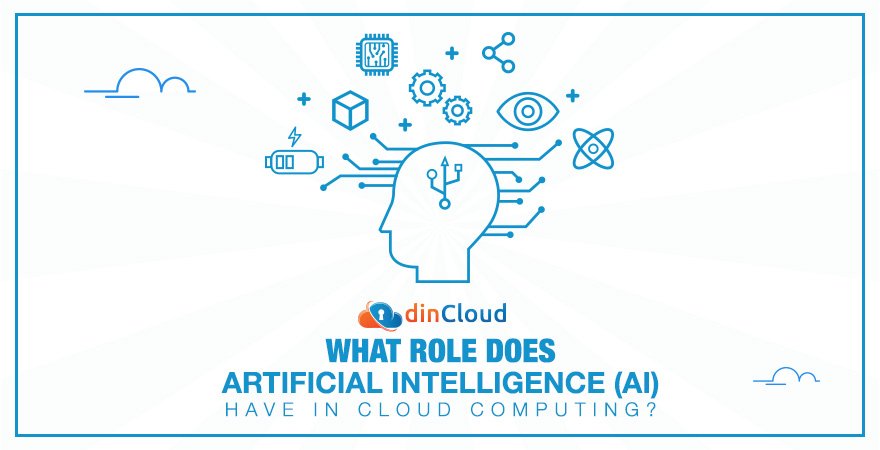
Introduction
Definition of Cloud Computing
Cloud computing refers to the delivery of computing services—including storage, power, and applications—over the internet. It allows businesses and individuals to access technology resources on-demand, eliminating the need for physical infrastructure. Think of it as renting space in a virtual environment rather than owning an entire building. For instance, services like Google Drive and AWS are popular examples that demonstrate how users can store files securely and run applications seamlessly online.
Definition of Artificial Intelligence
Artificial intelligence (AI) encompasses technologies that enable machines to learn from experience and perform tasks that typically require human intelligence. This includes everything from understanding natural language to visual perception. Imagine a personal assistant on your smartphone that can schedule meetings and set reminders—this is AI in action, making everyday tasks much smoother.
Overview of the Relationship between AI and Cloud Computing
As we delve deeper, it’s essential to understand how AI and cloud computing intersect. Cloud platforms provide the necessary computational power and storage for AI algorithms to thrive. By leveraging AI in cloud environments, businesses can enhance their services, optimize operations, and unlock new capabilities. For instance, cloud-based AI services can analyze vast amounts of data quickly, allowing businesses to make smarter decisions faster. This synergy not only drives innovation but also sets the groundwork for incredible future possibilities.

Evolution of Cloud Computing with AI
Integration of AI in Cloud Services
The integration of AI into cloud services marks a significant milestone in technological innovation. Major cloud providers, like Microsoft Azure and Amazon Web Services, now offer AI-driven tools that allow businesses to harness machine learning capabilities with ease. This evolution means businesses can implement sophisticated AI applications without deep technical expertise or heavy investment in hardware.
Advantages of AI-Driven Cloud Computing
There are several advantages to utilizing AI in cloud computing:
- Scalability: Resources can be adjusted to meet fluctuating demands, ensuring optimal performance.
- Automation: Routine tasks can be automated, enhancing productivity and freeing up staff for strategic initiatives.
- Enhanced Analytics: AI’s ability to analyze vast data sets provides businesses with insights and predictive analytics that can drive decision-making.
Use Cases of AI in Cloud Computing
AI’s applications in cloud computing are numerous and impactful. For instance:
- Chatbots: Many companies utilize AI chatbots hosted in the cloud to enhance customer support.
- Predictive Maintenance: Businesses can monitor equipment health and predict failures before they occur, reducing downtime.
These advancements reveal the profound impact of AI on cloud platforms, ushering in a new era of efficiency and intelligence.

Impact of AI on Cloud Infrastructure
Improved Resource Management
As AI continues to evolve, one of its most significant impacts on cloud infrastructure is improved resource management. AI algorithms can predict resource needs based on usage patterns, ensuring that allocations match demands. For instance, if a company’s servers experience heightened traffic during specific hours, AI can automatically reallocate resources to maintain performance without manual intervention.
Enhanced Security Measures
Security is paramount in cloud computing, and AI enhances protection by identifying and responding to potential threats in real time. AI systems can analyze vast amounts of data to detect unusual activities, flagging potential security breaches before they escalate. This proactive approach to security is akin to having a highly intelligent security guard monitoring your system 24/7.
Efficiency and Cost-Effectiveness
Incorporating AI into cloud operations not only boosts efficiency but also drives cost-effectiveness. Businesses can reduce waste by automating tasks and optimizing resource usage. For example, AI can streamline data storage and retrieval processes, significantly cutting down on operational costs. This collective impact empowers organizations to allocate their budget towards innovation and growth, providing an excellent return on investment in both AI and cloud technologies.

Challenges and Risks in Implementing AI in Cloud Computing
Data Privacy Concerns
While the advantages of integrating AI into cloud computing are numerous, there are inherent challenges, especially regarding data privacy. As organizations leverage AI to process vast amounts of data, safeguarding sensitive information becomes crucial. This is particularly relevant for industries like healthcare and finance, where regulatory requirements are stringent. For instance, a data breach could not only lead to financial loss but also damage a company’s reputation.
Potential Security Threats
Moreover, the incorporation of AI in cloud services does not eliminate security threats; it can sometimes exacerbate them. Cybercriminals are becoming increasingly sophisticated, leveraging AI themselves to strategize attacks, making traditional defenses less effective. It’s like playing a constant game of chess—organizations must stay a step ahead to protect their infrastructure.
Integration and Compatibility Issues
Finally, integration and compatibility issues can arise when merging AI solutions with existing cloud infrastructure. Organizations may face challenges in ensuring that new AI tools work smoothly with legacy systems. This can lead to unexpected costs and delays in implementation. Therefore, companies must carefully plan their AI integration strategies to maximize benefits while mitigating these risks, ensuring a balanced approach to the evolving landscape of cloud computing.

Future Trends and Innovations in AI-Enabled Cloud Computing
Edge Computing and AI
Looking ahead, one of the most exciting trends is the convergence of edge computing and AI. Edge computing allows data to be processed closer to the source rather than relying solely on centralized cloud servers. This is particularly useful for applications like IoT devices, which generate massive amounts of data that need rapid analysis. Imagine a smart factory where machines communicate in real time; AI at the edge can help optimize operations on-site without delays, enhancing efficiency.
Quantum Computing Applications
Another promising trend lies in the advent of quantum computing. Although still in its infancy, quantum computing has the potential to supercharge AI algorithms, enabling them to solve problems that are currently unmanageable. For businesses, this could mean breakthroughs in data analysis and decision-making processes, providing a competitive edge in a fast-paced market.
Autonomous Cloud Operations
Lastly, we are on the brink of autonomous cloud operations, where AI systems will manage and optimize cloud resources independently. This shift could revolutionize how businesses operate, reducing overhead costs while ensuring maximum efficiency. Picture a cloud environment that self-heals, reallocates resources, and optimizes performance without human intervention—this is the exciting future that AI promises in cloud computing!

Conclusion
Recap of AI’s Role in Cloud Computing
As we conclude our exploration of AI’s integration with cloud computing, it’s clear that this collaboration has transformed the way businesses operate. AI enhances cloud services by providing intelligent resource management, improving security protocols, and optimizing data processing. These advancements enable organizations to harness their data more effectively and drive innovation.
Implications for Businesses and Industries
The implications for businesses across various industries are profound. Companies can leverage AI-driven insights to refine their strategies, improve customer experiences, and increase operational efficiency. For example, retail companies are now using AI for personalized marketing, analyzing shopper behavior to tailor promotions and enhance sales.
Looking Ahead: The Future of AI-Driven Cloud Solutions
Looking ahead, the future of AI-enabled cloud solutions is incredibly promising. Emerging technologies such as edge computing and quantum computing will further enhance capabilities, allowing for faster processing and smarter systems. As companies continue to innovate, they will unlock new potential, shaping a digital landscape that is more responsive, secure, and intelligent. Embracing these advancements will be the key to thriving in an ever-evolving technological environment.

